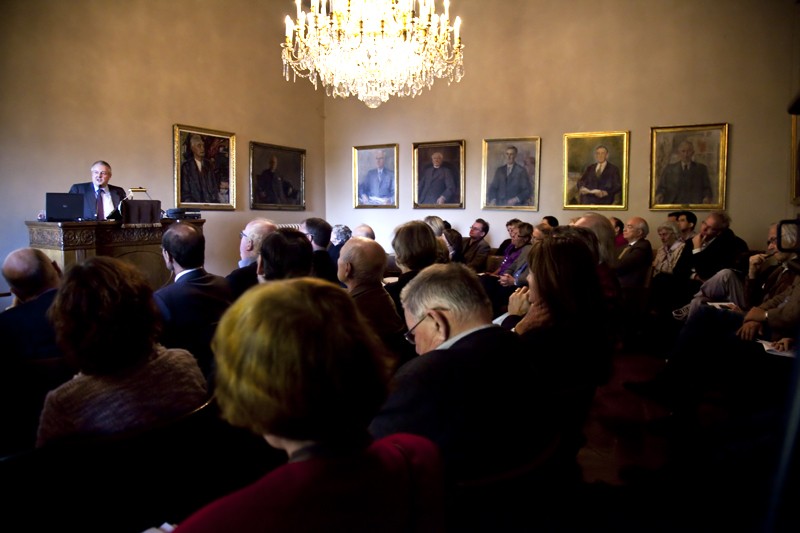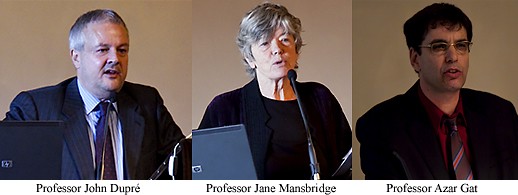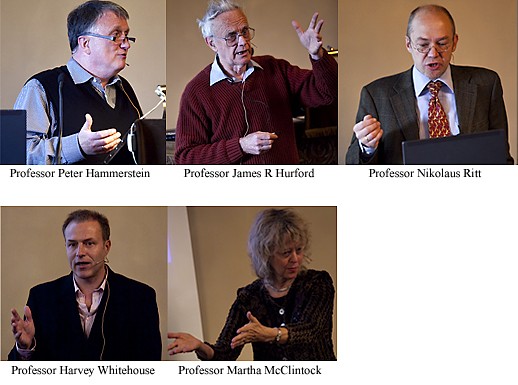
Akademiseminaret innen humaniora og samfunnsfag med mange interessante diskusjoner
Det første av Akademiets internasjonale seminarer innen humanoira og samfunnsfag; Evolution, Culture & Society ble 19.- 20. oktober holdt i Akademiets hus. I løpet av det to dager lange arrangementet ble det holdt åtte foredrag av fremtredende internasjonale forskere.
Symposiet fokuserte på utviklingslærens betydning for samfunnsfag og humaniora, og de åtte foredragsholderne skapte engasjement, noe som kom til uttrykk gjennom interessante diskusjoner.
Formann i Akademiets historisk-filosofiske klasse, Jan Terje Faarlund er godt fornøyd med arrangementet.
- Vi fikk tak i noen svært dyktige foredragsholdere, noe som var med på å gjøre dette vellykket. Arrangementet fungerte også i et tverrfaglig perspektiv, og det ble mye og god diskusjon mellom personer fra forskjellige fag, sier Faarlund.
Han tillegger at han er fornøyd med at også foreleserne deltok aktivt i diskusjonen rundt foredragene.
Seminaret er planlagt arrangert hvert annet år.
Foredragene:
- Professor John Duprè, University of Exeter, Great Britain: What does Darwinism tell us about human nature?
- Professor Jane Mansbridge, Harward University, US: How the world works: Enclave variation and everyday selection in the generation of ideas
- Professor Azar Gat, Tel Aviv University, Israel: Why war? Motivation for fighting in the human state of nature and after the onset of cultural evolution
- Professor Peter Hammerstein, Humboldt University of Berlin, Germany: Games, markets and the evolution of cooperation
- Professor James R Hurford, The University of Edinburgh, Scotland:
From apes to language-using humans
- Professor Nikolaus Ritt, Vienna University, Austria:
Assuming that it is possible to approach cultural history in evolutionary terms, are there any good reasons for doing so?
- Professor Harvey Whitehouse, Oxford University, Great Britain:
Explaining religion
- Professor Martha McClintock, The University of Chicago, USA:
Broken ties? Lessons learned from an evolutionary and transdisciplinary approach to social isolation and illness

